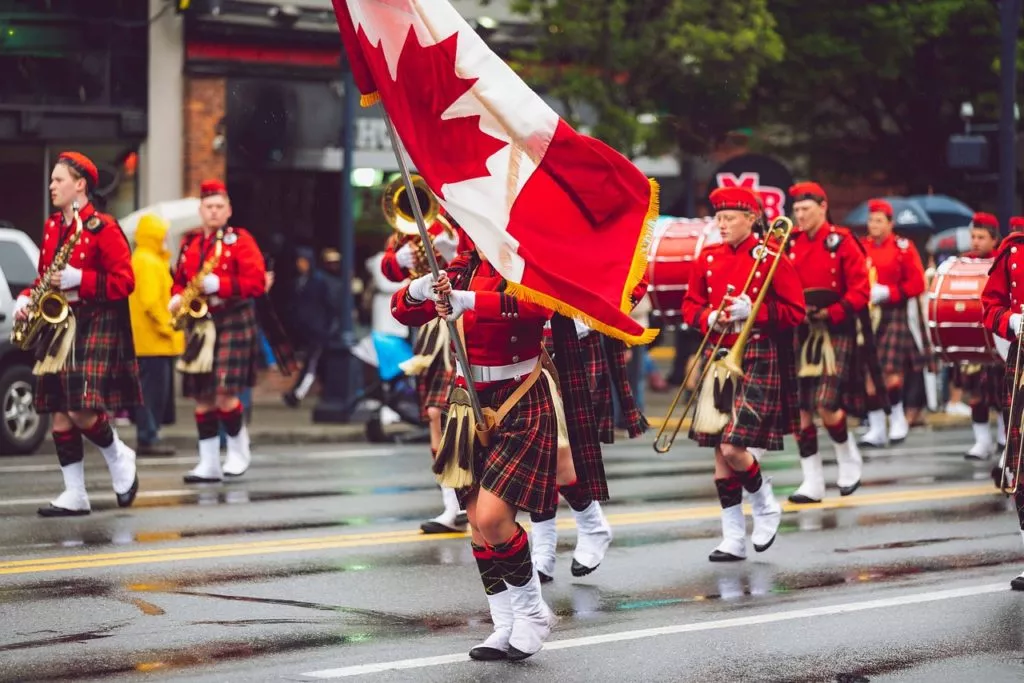Preparing for Canada: Things to consider
Canada is a pretty amazing place with some of the world’s most gorgeous natural environments and wildlife. The country has a rich history, from the ethnic traditions of natives to the political intrigues of Scotland, England, and France. Half of Canada speaks French, roughly; the other half speaks English.
The reason “Nova Scotia” has the name it does is because those who named it were reminded of old Scotland. Nova Scotia means “New Scotland”, essentially. As a matter of fact, quite a few Scottish people live in Canada, Mike Myers partially lampooned that reality in his 90’s sleeper hit So I Married an Axe Murderer.
Yet despite the English, French, and Scots people all being jumbled together in communities that see some of the coldest winters on the planet, Canadians are remarkably polite, and the country has a vibrancy of cultural contribution that’s hard to ignore. Some of the world’s best filmmakers and comedians come out of Canada, and the country has made substantial scientific contributions as well.
If you’re thinking about getting a formal degree in Canada, there’s much to recommend it. That said, if Canada isn’t your home country, you’ll have to think about a few different things. Following we’ll briefly explore seven things you definitely want to prepare for as you go about securing a position at Canadian educational institutions.

1. You’re likely going to need a PR card
Entering and studying in Canada will be a bit of a process. Adults understand a little more than younger students, as they’ve had the opportunity to make a few mistakes. If you’ve had a DUI (Driving Under the Influence), you can’t enter Canada without paying a lawyer to file some paperwork as a means of having you approved.
This is a bit ironic, there’s a culture which definitely has an affinity for alcohol in Canada. But such peculiarities abound in the country. For example, you’ve got to be approved for long-term residence. There are a lot of ways you can make the process easier. Getting a Permanent Residency (PR) card through groups such as Express Entry PR saves time.
Know how long you plan to study, where you plan to study, and what varying laws in varying areas say you need to do to gain legal entry.
2. Most of Canada’s population is near the US border
70% of Canadians and there are 38,000,000+ of them, live south of the 49th parallel. 50% of them live in Toronto, Ottawa, and Montreal; basically that section between the great lakes and New York that isn’t American. That’s kind of amazing when you think about it, the country is about the size of the United States, geographically speaking.
What this indicates is that there are vast swathes of almost empty, virgin land in Canada. Sure, it’s under ice most of the year, but it’s there. You’ll probably be looking at places in this specific area of the country, and you want to be aware of that when you’re applying for varying collegiate institutions.
If you’re not careful, you could end up in some tiny town hundreds of miles away from large metropolises. But keep in mind, that’s also not always a bad thing. Banff, Canada is one of the most beautiful places in the world, and it’s a tiny little town of only a few thousand people. Just be aware of the environment you’re about to become a part of, even if briefly.
3. Canadian winters can be very cold
Canada, Alaska, and Russia are in constant contention for which populated area is the coldest. Most people think Russia is the winner, but Canada has a highway of ice every year, and Alaska is basically Hoth (That’s the ice planet out of Star Wars).
That said, hidden in American Siberia (the Great Plains) is a state called Wyoming that once had the five coldest cities in the world.
Here’s the thing: Wyoming is south of Canada; by hundreds of miles. So you can imagine how chilly things get. New York City is straight east of Canada’s majority population. Expect a similar weather trajectory to NYC or the U.S. side of Niagara Falls.
Things get frozen for a time, and well below zero degrees on the Fahrenheit scale. Be prepared for that. Pack appropriately.
4. Canada has different free speech laws
Canada doesn’t have the same kind of free speech America does, and as a college student especially, it’s important to realize that. Canada is a bastion of standup comedy, some of the funniest people in the world come from the country. However, some comedians have faced heavy fines for saying things people didn’t like. The government fined them.
Maybe that doesn’t affect the majority of people, but if you’re used to having certain freedoms in the United States regarding speech, you need to know they’re not protected in the same way north of the border. Be aware and cognizant of this reality to avoid incidental dust-ups.
5. International students have different rights
As an international student, you’re not a citizen of Canada, accordingly, you do carry over some of your rights from your home country, but not all of them. This is the case when you study abroad in any country.
You can’t do all you did in your home country, but you may be able to avoid some laws from home owing to your foreign status. That said, certain things can’t be avoided, so again, be careful. And if in the future you decided to reside in Canada, some tests are required. You may begin and take the quiz in this practice test.
6. Only DLIs admit students that are “international”
A DLI is a “Dedicated Learning Institution”. Essentially, this is a school which is allowed to admit international students. Not all institutions in Canada are allowed to do that. Thankfully, all primary and secondary schools recognized as legitimate schools by the Canadian government are defined as DLIs.
The only real difficulty you’re going to encounter with DLIs is that not all post-secondary schools have such certification. There’s a government list Canada provides that you can check to determine whether a school you’re considering is a DLI or not. If it isn’t, you may not be able to gain admittance.
7. Different schools have different language realities
Canada has multiple languages that are recognized in an infrastructural capacity. Natives in the north living in co-operatives (co-ops) speak their ethnic tongue. Most people in Canada speak English, but about half the country speaks French. French Canadian fur trappers are foundational to Canada, and in fact to America as well.
In the early days of European occupation of the North American continent, many fur trappers traveled to the USA as a means of generating an economy. Some were rather scandalous, keeping multiple wives in multiple locations and circulating like a tomcat on the prowl—James Michener’s Centennial explores that through the character of Pasquinel. Be that as it may, the patterns of commerce such trappers facilitated formed international economic foundations.
British Columbia and Nova Scotia are both Canadian areas, and as with Scotland mentioned earlier, there is some affiliation between the Canadian government and the British Crown. America revolted against England, but Australia and Canada did not. Only in 1987 did Canadian dependence on the Westminster parliament end. The country is now independent.
However, in some regions, owing to the colorful history we’ve abbreviated here, you won’t find any English speakers at all. Especially on the eastern side of the country, you’ll find a lot of French speakers. Some schools only speak French, so if you’re going to study there, you’ll want to have at least a passing familiarity with the French language.

Getting your degree in the Great North of Canada
Canada is full of beauty, opportunity, and history. It’s also an independent country that has its own perspectives on a variety of things. Studying there is a fine idea, and accredited DLIs throughout Canada will provide you with credentials that are respected throughout the world. You’ll learn, and your learning will be recognized. There are things to remember, though.
Be sure whatever institution you decide to attend has accommodations for the language you speak; most will be French or English. Be sure you find schools that have received DLI status. Students that come from other countries will have slightly different rights than locals. Also, Canadian law as regards free speech differs from America, so be advised.
Certainly, you probably already know how cold things can get in Canada, but you want to be prepared if you plan on wintering there. Some communities may be so cold, you can’t leave for Christmas. That said, since most of Canada’s population is near the U.S. border, for most students, this won’t be a big issue. Lastly, you’re going to need a PR card.
One final thing. As Americans are more passionate about football than perhaps they should be, Canadians absolutely adore ice hockey. Russians may laugh at American hockey players, but they respect Canadians (and Minnesotans—who, believe it or not, aren’t actually southern Canadians.) Familiarize yourself with hockey, and local Canadians will like you better.

